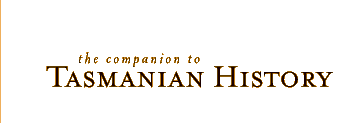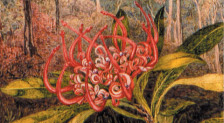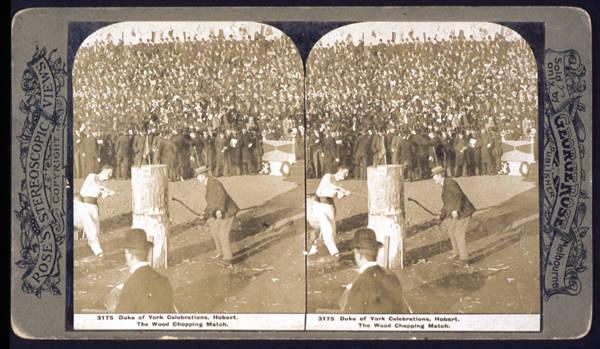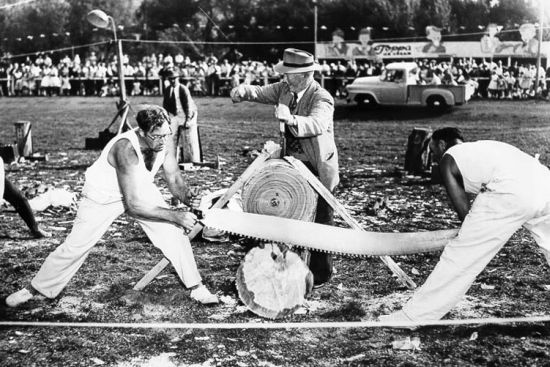 |
 |
|
Woodchopping
Throughout Australian history, woodchopping and sawing competitions have been common occurrences in the bushman's workplace and camps. The first formal competitions developed around the mountain ash forests of Tasmania, where the Tasmanian axe had been developed for cutting hardwood, which included the toughness of the stringy bark and peppermint trees. It is these hardwoods that have contributed to Tasmanians being at the forefront of world champions, even until the present day. Man's desire to be competitive and beat his mates was the driving force behind the emergence of the sport of woodchopping. It is one of the few sports that evolved from daily work or an occupation. The first confirmed record of a chopping match appeared in the Mercury, 10 January 1872. On 6 January at a site between Port Esperance and Surges Bay, Edward Murray of Surges Bay and Edward Owens of Port Esperance operated on a swamp gum tree 3 feet 6 inches in diameter, with the winner Murray cutting through the tree in 44 minutes and winning £3. An indication of the event’s prominence was that reports of the match featured in several mainland newspapers. There were further events in the Port Esperance and Southport areas and chopping soon spread to other parts of Tasmania and Australia.
Competitive woodchopping has always been a family-orientated sport, with sons following their fathers and grandfathers and more recently daughters and granddaughters participating. Some predominant Tasmanian family names are Youd, Foster, Lovell, Sherriff, Rattray and Eaves (sawing). Over the past 102 years Tasmanian axemen have won thousands of world championship events. Doug Youd and his brother Bill Youd (still competing) have a long list of world championships, to class them as the best in the world in tree-felling. Matthew Gurr, mentored by Bill Youd, is the undefeated world champion in this event. Unquestionably, the most notable axeman, with a long list of achievements and still competing, is David Foster, who has 182 world titles, 175 Australian titles and 1300 championship titles overall. Marie McCulloch |
Copyright 2006, Centre for Tasmanian Historical Studies |

